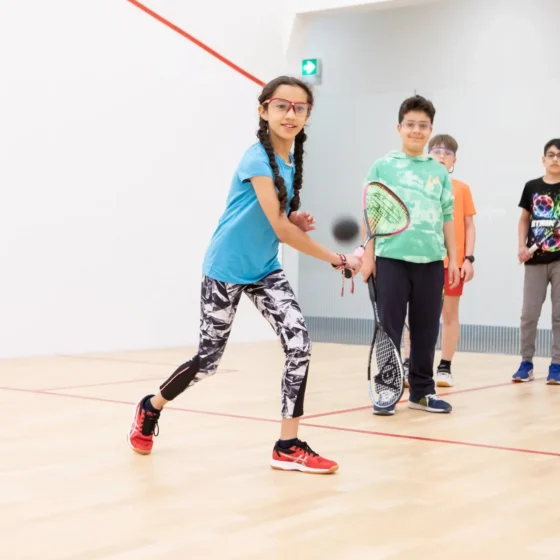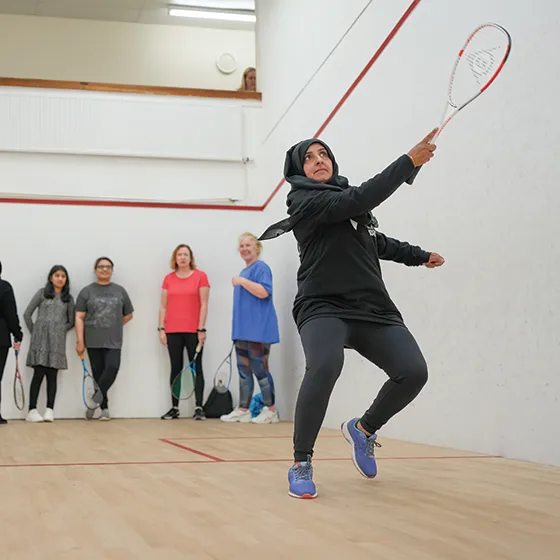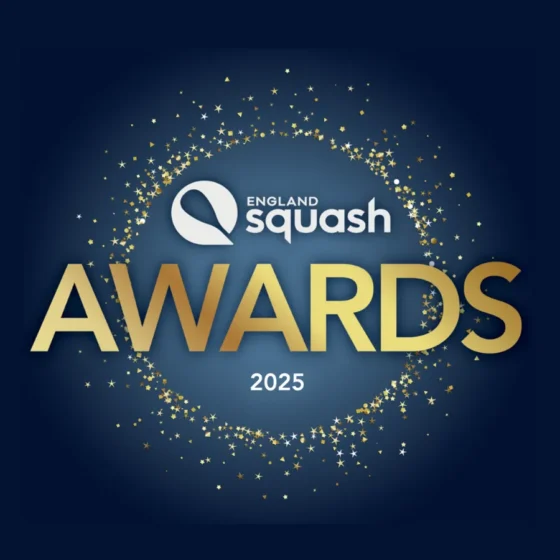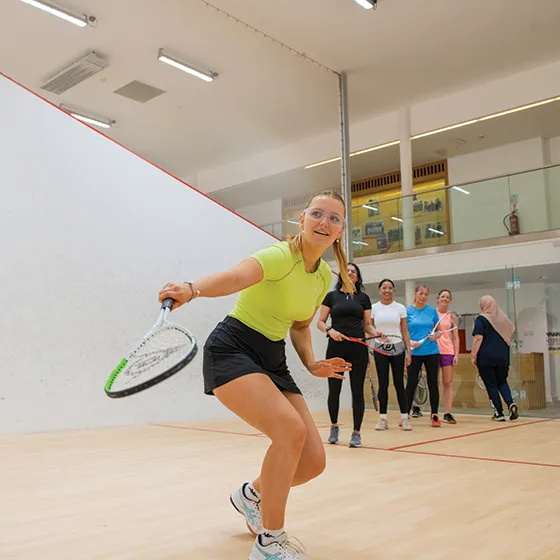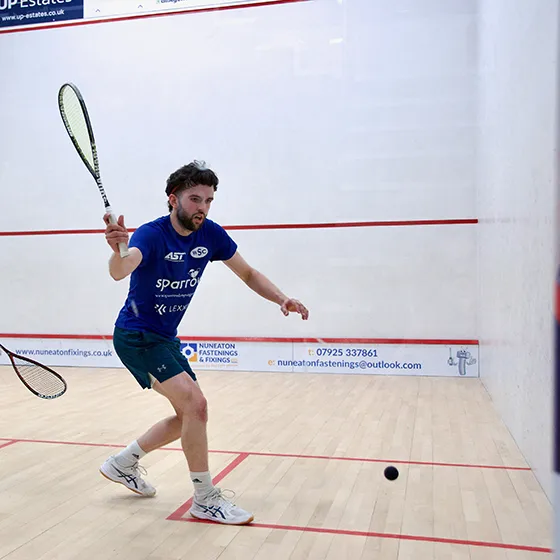It’s been a long time coming, but after decades trying, squash will finally take its place on the Olympic stage at the LA Games in 2028
As sports like skateboarding and sport climbing have experienced, Olympic inclusion can thrust a fringe sport into the mainstream glare, with all the prestige and benefits that comes with it. Ahead of their five-ringed bow in the USA, here’s how squash is aiming to grab its opportunity with both hands…
Money talks
In sport, there are few better ways to appeal to those who control the pursestrings than by promising some Olympic success. In December 2024, UK Sport has announced a record £330m of Government and National Lottery funding to be invested in 50 sports for the 2028 Olympic Games cycle.
For the first time, squash counted itself among those chosen few, meaning it welcomed £500,000 over four years to support British squash athletes in the build up to the Games. It is hoped that not only will this investment boost Britain’s chances in LA, but will also help to further promote the benefits and appeal of squash at grassroots level.
“Because squash hasn’t been an Olympic sport, it doesn’t get the funding that say badminton would get,” says England Squash Coach of the Year Jayne Robinson. “I just hope it leads to more press coverage and more social media coverage, because people learn so much on there.”
Reframing the narrative
While upstart racquet sports like padel and pickleball are enjoying a surge in popularity, thanks largely to their widespread and inclusive appeal and ease of pick-up at beginner level, squash is among many traditional sports that have struggled to regain their pre-Covid participation numbers.
“I don’t think squash is as popular as it was,” admits Jayne. “If you look around the country, there are pictures on social media of squash courts that now are spinning classes, or a storage space, and some squash courts and clubs are closing. And padel is coming into its coming into its own now, so it’s a worry that people will move to padel,” she says, noting that squash can sometimes be guilty of living in the shadows of its heyday.
“Squash really grew in the 50s, 60s, and 70s, and there were some great players like Jahangir Khan, who was well known, and Jonah Barrington, and that was its heyday. And then it just fizzled out a little bit, because people either stopped playing or they get older and we didn’t get new people in.”
At Jayne’s Pontefract Squash Club, they plan initiatives with schools, target gym-goers, and run women-only sessions in the hope of gaining a new audience. But Jayne believes the biggest factor will be to get squash on mainstream television.
“It’s a challenge for England squash to try and promote squash and get it going again. I know the Professional Squash Association tries really hard to promote squash on the telly but I don’t see it very often. Maybe a little bit during the Commonwealth Games, but it’d be on one of those tagged-on bits at the end. Whereas at the Olympics, it’s going to be played at Universal Studios in Los Angeles, so that should be a great venue and create some interest [to tv producers].
Proving it can make great TV
Speaking of television, one of the main blockers to squash’s acceptance by the IOC was believed to be a struggle to translate the appeal of the sport to the small screen. As Jayne says, setting it at actual film studios in LA should certainly help, but ahead of that there are already innovations in place to make squash a more gripping spectator sport.
“It’s not always been the easiest to televise, but they’ve worked hard at building the glass courts and the white balls. Take the British Opens this year at the Birmingham Rep theatre. There was a load of razzmatazz with music playing when the players came on,” adds Jayne. The glass courts also featured excellent sightlines and dramatic lighting that brought a new level of visual appeal to television broadcasts.
Squash pro Rob Thirst, who also coaches out of London’s Connaught Club, believes that squash is more than capable of being just as entertaining as other Olympic sports, “The general production of the sport has just got way better. Personally, I disagree with the idea it’s hard to watch. Obviously I understand the rules, which makes it easier, but I think viewers will see a great spectacle and a sport that is really dynamic.
“You’ll see athletes going into the splits, getting back up, diving to get a ball back. Even if you’ve never played before, you’ll still have a general idea of what’s an outrageous shot, what might make a highlight reel. The general production of the whole sport has got way better. One of the myths – that it’s not easy to view – might finally get put to bed.”
Showcasing peak athletic fitness
One thing the Olympic Games tends to offer non-mainstream sports is an opportunity for unheralded athletes to finally stand in the spotlight. And Rob believes that squash’s elite players are ready to step up in LA. “I think it will be a great spectacle, for our pros and for the normal viewer of the Olympics, just to see something different.
“Without being too disrespectful to some of the sports that are in the Olympics, squash is a sport where you’ve got to be absolutely at your athletic peak, mentally at your peak, and technically at your peak. Every facet you could think of in any other sport, you’ve got to be right up there to be winning gold at squash in the Olympics.
“From that point of view, people watching will get to see some of the best athletes in the world that they wouldn’t have seen before.”
Find out more about squash’s debut at the LA Olympics











